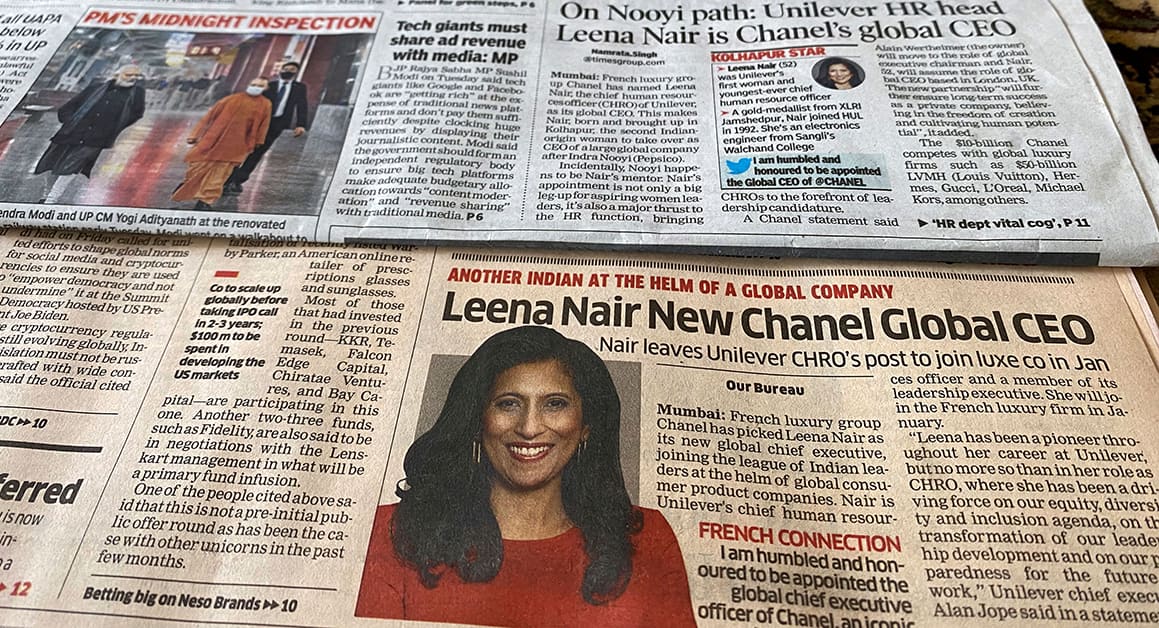A veteran of Unilever moves to take the reigns at Chanel.

When you are born in Kolhapur, a small town in the Indian western state of Maharashtra, the odds of becoming one of the most powerful names in the luxury industry are very slim. In December, the French giant Chanel surprised many by announcing it chose Leena Nair, a veteran executive at Unilever, to be its new CEO. Her ascension to the throne of the historic fashion house may not be as idiosyncratic as it might appear at first glance.
Thomaï Serdari, professor of Marketing and director of the Fashion & Luxury MBA program at the Leonard N. Stern School of Business at New York University, notes it is a mistake to focus on Nair’s background in the world of fast-moving consumer goods. Instead, it should be assessed against Chanel’s needs as it continues growing.
“Chanel does not need someone to come in with ideas about strategic positioning,” she says. “This has already been carved in stone with all the important acquisitions the company completed, giving it first access to unique talent while also reinforcing its vertically integrated supply chain.”
Armed with a degree in electronics engineering (“There were 3,000 boys and 18 girls in the the college,” she recalled in an interview), Nair went on to earn an MBA with honors. Shortly thereafter, Unilever hired her. In her almost 30 years at the Anglo-Dutch conglomerate, she worked her way up from management trainee to the first female, first Asian and youngest-ever chief human resources officer.
“What, then, would a global brand of the size of Chanel need as it continues to expand beyond the current number of 27,000 employees worldwide? A capable HR executive, of course,” says Serdari.
Nair comes with the experience of managing five times the number of people presently employed at the French house, she proved that she can commit to a business and grow with it, and understands that successful companies take care of their internal culture first, Serdari adds: “This is a luxury house that remains privately owned and independent while it also keeps growing. Addressing human capital now as a potential weakness is a very smart thing to do preemptively.”



